Land of the free provides a sobering lesson on vaccines
On current trends it will take until March next year for 85 per cent of the US population to be vaccinated, and even that is optimistic.

Australia has a herculean task ahead to convince 80 per cent of the population to get vaccinated, a threshold the Grattan Institute says is necessary before lockdowns and masks can be consigned to the past.
The nation most responsible for the trifecta of vaccine miracles last year offers sobering lessons. US states, as early as May, started offering an extraordinary array of incentives to encourage Americans to get vaccinated.
The big states including California, New York, Illinois and Michigan offered a mix of cash lotteries with million-dollar prizes and for students the chance to win full university scholarships.
Other states were a little less conventional. Washington State offered Joints for Jabs (where marijuana is legal). The Snaxx for Vax scheme in Arizona extends to both joints and edibles.
Louisiana rolled out Shot for a Shot, offering an alcoholic beverage for every vaccination dose. Maine, a little more traditional, offered hunting and fishing licences.
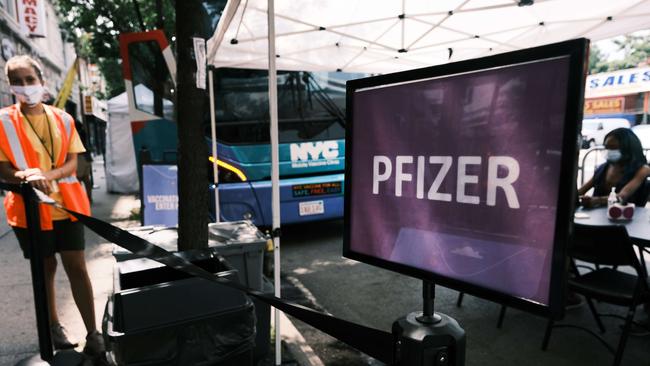
In New Jersey, you could win dinner with the Governor at Drumthwacket, the official mansion, while in Indiana, perhaps with a greater emphasis on home dining, vaccine clinics handed out boxes of Girl Scout cookies.
First prize for novelty, though, must be a tie between West Virginia, which offered specially outfitted trucks and custom hunting rifles, and Alabama, which gave free laps around Talladega Superspeedway and, for the under 29s, a TikTok competition.
By Thursday, more than 189.5 million Americans had received at least one shot, just over 69.3 per cent of the adult population, obscuring a huge range across the 50 US states from more than 87 per cent in Vermont to less than 50 per cent in Mississippi.
Businesses have spruiked for vaccines, too. Krispy Creme gave out free doughnuts to customers who could show positive vaccination status. United Airlines and pharmacy giant CVS offered the chance to win lavish holidays.
As inventive as they all were, they haven’t worked. The law of diminishing marginal returns set in with a vengeance. Arkansas and Ohio, the first state to introduce a lottery in May, have cancelled their programs.
The number of Americans being vaccinated each day shot up to 3.3 million in April, and has fallen steadily since, to about 650,000 a day.
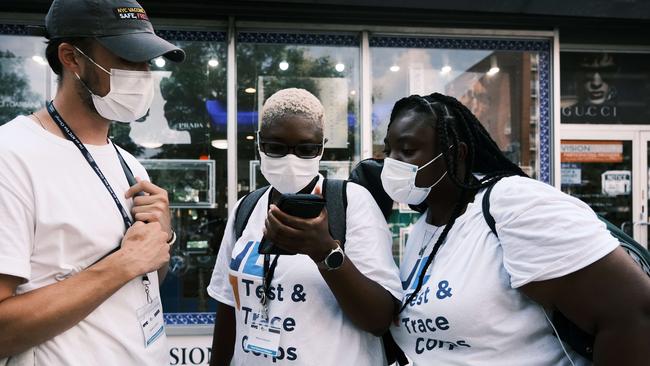
On current trends it will take until March next year for 85 per cent of the US population to be vaccinated, well into the northern hemisphere spring when experts expect cases to rise again.
Even that’s optimistic. About 80 per cent of unvaccinated Americans say they will “definitely not” or “probably not” be vaccinated, according to the most recent poll conducted for Associated Press-NORC Centre for Public Affairs Research this month.
What’s worse, the appeal of being vaccinated is diminishing.
“The rule is now simple: get vaccinated or wear a mask. The choice is yours,” Biden said in May, a view backed by his chief medical adviser, Anthony Fauci.
“If in fact, you are vaccinated, fully vaccinated, you are protected, and you do not need to wear a mask, outdoors or indoors,” Fauci said on June 29.
For anyone who didn’t care much either way about being vaccinated, freedom from forced masking was a powerful incentive. That’s all gone now.
The CDC has changed its guidance recommending masks for all indoors, a move some critics said would raise questions about the efficacy of the vaccines themselves. Washington DC on Thursday joined Los Angeles in reimposing mandatory masks for everyone over two years of age. As spring arrives and cases inevitably surge, other big cities, which tend to be controlled by Democrat mayors, will almost certainly follow suit.
Vaccine mandates might be the only remaining tool left for authorities to reach “herd immunity”.
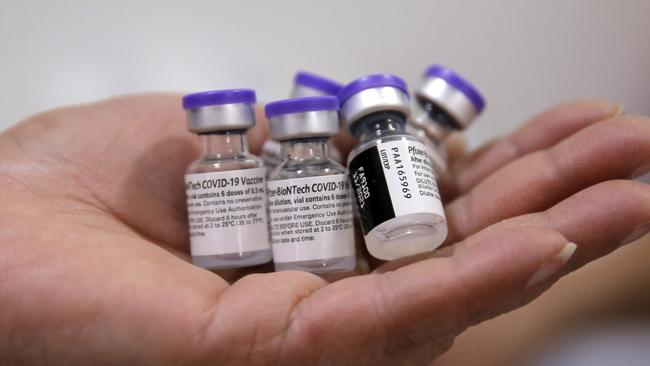
Biden mandated vaccines for federal employees on Thursday, following similar announcements by universities, for teachers and students, across the country.
But mandates will most likely fail, too. Unless governments offer huge guaranteed financial rewards for vaccination, getting rates much above 80 per cent will prove challenging.
Even in France and Italy, where governments recently announced that the unvaccinated would not be allowed in restaurants, shops and bars, only about 60 per cent of the population had received at least one shot a few weeks later.
Many people, for a variety of rational and irrational reasons, simply don’t want to be vaccinated. To be fair, universal vaccination against Covid-19 is not the ideal.
Some people are already immune through natural infection. For others, the certain risk of vaccination side-effects might logically be a greater concern than the possibility of symptomatic Covid-19. Not everyone catches it.
According to the Winton Centre at Cambridge University, for people up to age 40, the potential harms of receiving the AstraZeneca vaccine exceed the benefits, when Covid is at low levels in the community, for instance.
Vulnerable groups already have a powerful personal incentive to seek vaccination. Indeed, almost 90 per cent of Americans aged over 65 have been already.
It’s true the more unvaccinated people, the greater the risk a vaccinated person will catch Covid-19.
But the increase is minuscule.
Even unvaccinated, the vast bulk of people, even those aged over 80, survive Covid-19; and with vaccination the chance of hospitalisation or death collapses. Does that tiny incremental risk justify forcing someone else to do something they don’t want to?
There’s no right answer. But there is a pragmatic answer.
More than 160,000 people protested in France following the vaccine mandate, a nontrivial crowd. Governments risk powerful pushback if they undermine pre-2020 norms too quickly.
One minute you’re flattening the curve with the latest spreadsheet from the Doherty Institute, next minute you’ve borrowed $600bn, called in the army and locked your biggest cities.
“Opening up too early – for example, at 50 per cent or 70 per cent – would risk rampant spread of the virus and hospitals being overwhelmed,” the Grattan Institute said this week.
Even if that were true, it might be a better outcome than risking a generation of political rancour, as a significant, embittered minority, dragooned into behaving against its wishes, seeks retribution.
The US at least, already polarised politically, economically and socially, doesn’t need to be riven across yet another dimension.
It’s not solely partisan. Ten per cent of Democrats, millions of voters, say they haven’t and probably won’t get vaccinated, either.
If the US gives up on universal vaccination, at least Americans have some residual immunity. Well over 115 million of them have been infected with Sars-Cov2, according to the Centre for Disease Control’s latest estimate.
Australia does, however, have the luxury of being able to observe the behaviour of Covid in nations where vaccination levels are much higher. The virus doesn’t go away.
There’s a lot to be said for ending restrictions, ensuring vaccines are free and plentiful, and letting people make their own minds.



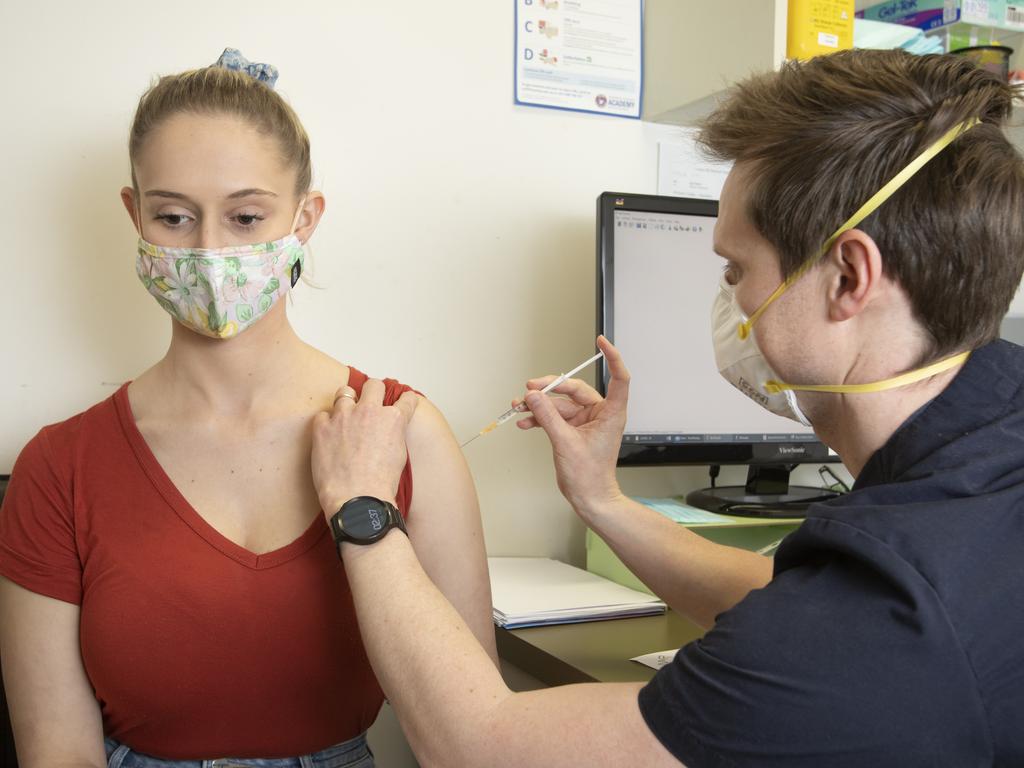
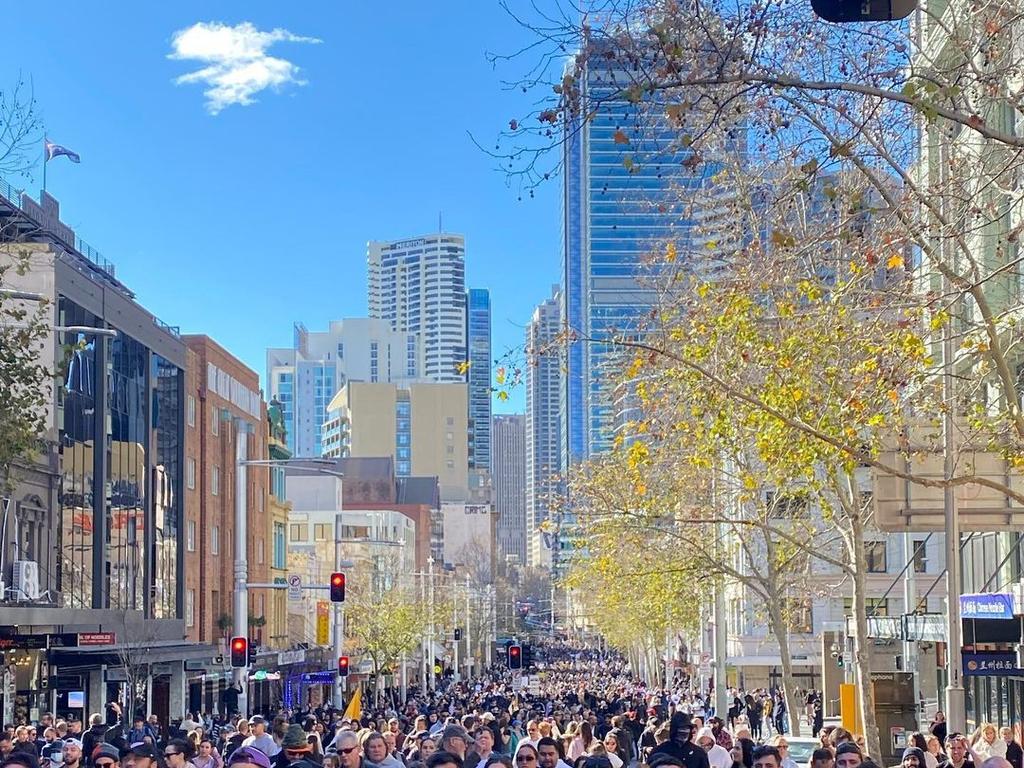



The US is limping towards President Joe Biden’s Fourth of July goal of having 70 per cent of American adults vaccinated with at least one shot of a Covid-19 vaccine.